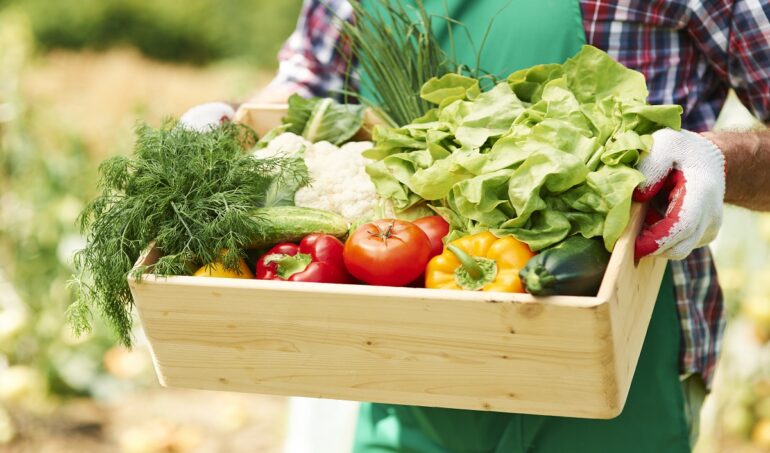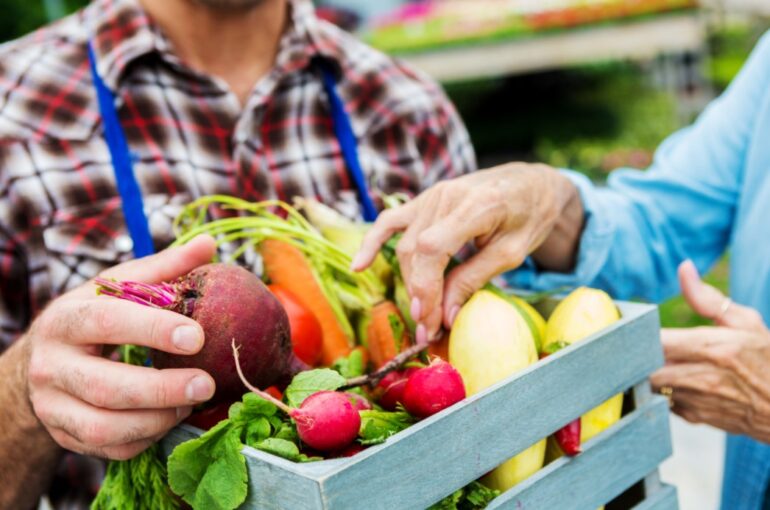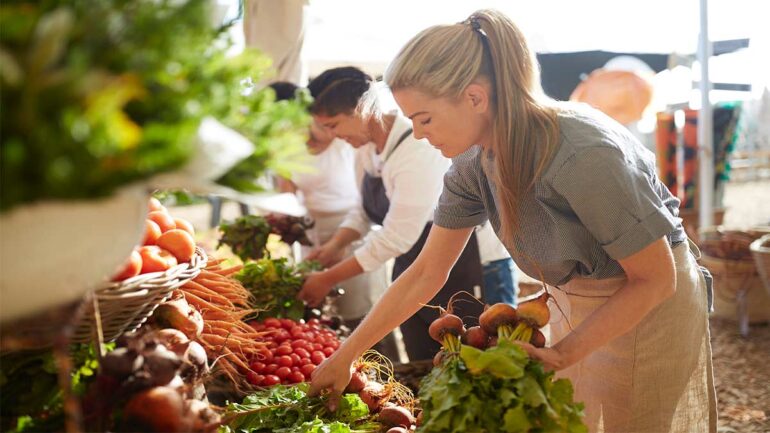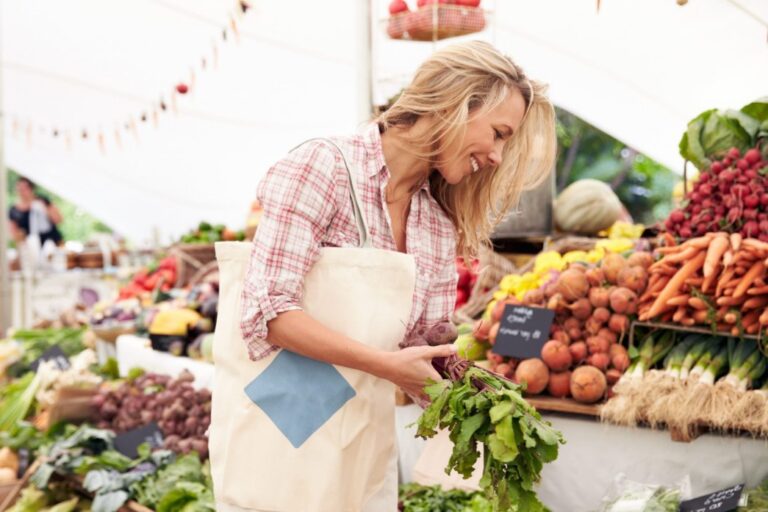Having a good diet, eating healthy food, exercising regularly and good sleep are the essentials for being healthy. Food works as a fuel for our bodies which is why it’s so important what we intake if we want to function optimally. A balanced diet is the only way to stay healthy.
Some of the most important foods that are good for you and should be part of your diet are leafy greens. Eating lots of greens such as spinach, kale, and chard is a great way to get the nutrients and vitamins you need to stay healthy. Greens are also high in fiber which means they are easy to digest. After greens, there is, normally – protein. Eating protein is essential for building and repairing the muscles and tissues of the body. Fruits, whole greens, limiting highly processed foods, and hydrating your body by drinking a lot of water are also something you should do.
But have you ever thought about the difference between organic and non-organic food? It seems like one of the most Googled questions is the question of whether organic food is better or not. The answer is simple: it is better.

Not only does it mean that if you’re buying and consuming organic food, this actually means that you are not eating GMOs and your food is also being free of pesticides (or there are fewer of them); it also means that by opting for organic food, you’re making sure that you don’t eat different types of chemicals and you’re eating produce that has a bigger nutritional value.
Organic foods are usually richer in nutrients because they haven’t been enriched with synthetic fertilizers, but are being made in natural processes. Finally, organic food is more delicious than non-organic because it’s richer in flavors and aromas.
Last but not least, by opting for organic solutions, you’re actually making sure that the Earth is not polluted that much. How is this possible? When you buy food that’s been made in non-organic farming environments this means participating in the never-ending circle of pollution. If you go for organic farming, you’re embracing the mindset about our natural biodiversity that doesn’t find certain bugs such as bees to be harmful and killed with pesticides. On the other hand, with mass production, herbicides are being used on a daily basis, no matter if they’re needed or not.
People who have certain health conditions or are suffering from allergies and food intolerance have seen some great results after they’ve stopped eating non-organic food. There are multiple reasons for this. But the most essential is the fact that chemicals, preservatives, antibiotics, or hormones are almost always present in conventionally grown foods and ingredients, which is not the case with organic ones. There might be some pesticides present but only in small amounts.

However, is it simple to tell if your food is organic or not? Are the labels the only thing you should look at, or are there some other tips and tricks on how to do this? Let’s dive into it.
First of all, you need to be aware of the distinction between organic and natural ingredients. First, you need to understand that organic food is foods that have been produced while using specific methods and materials as well as organic environments. On the other hand, natural only means that there are no preservatives or specific colors and other additional ingredients.
When it comes to labels, you should know that if it says specifically that it doesn’t have hormones or antibiotics in the product or produce, it doesn’t mean it’s organic. It’s most likely a marketing trick so it’s better you avoid this type of label and products. If you want to start consuming only healthy foods, the health food shop Ferntree gully is what you should check here.
What you can do, however, is check if the product you want to buy has a label (or in other words, a certification) that says the product is certified, organic, and safe, because it means it’s been tested and it is truthfully organic. These tests are pretty rigorous which means that if a product has undergone and passed the test, it is the perfect choice for consumption.
Other than that, you can simply put in some time and effort into reading the small letters and trying to find any ingredients that seem like they don’t belong there. If you notice any signs of weird ingredients or additives, this means the food is not really organic, especially if these ingredients are synthetic.
Also, when it comes to fruits and vegetables there are some stickers you need to pay attention to as well as the codes on these stickers. If the manufacturer is reliable and renowned he will specify if any chemicals, pesticides are being used or if it’s been genetically modified. All of this will be easy to tell from the numbers that are on the stickers.

If you’re purchasing your organic fruits, vegetables, or other ingredients in farmer’s markets, don’t hesitate to ask the seller everything you want to know and he should be more than happy to give you the info. Or even show you some certification and paperwork when it comes to if their products are organic or not. The same goes for buying produce anywhere else. If the seller is trying to stay mysterious or it seems like he doesn’t have answers, this is a clear indicator that you should look for your organic food elsewhere.
You could also look at the percentage of organic inside every ingredient or product. What does this mean? It’s always the best option to purchase only 100% organic foods. But if you noticed there is less than 70% organic content in the product, and you want to buy it, it means that it’s only partially organic which is still better than convenient non-organic ingredients. Also, don’t hesitate to purchase transitional foods because it means that the manufacturer is simply converting from conventional and unhealthy to organic and healthy. By doing this you’ll encourage the manufacturer throughout the process.
Finally, you can use certain apps that can help you detect 100-percent organic foods and also help you connect with local small manufacturers which is a fantastic thing to do if you’re not sure where to start.

